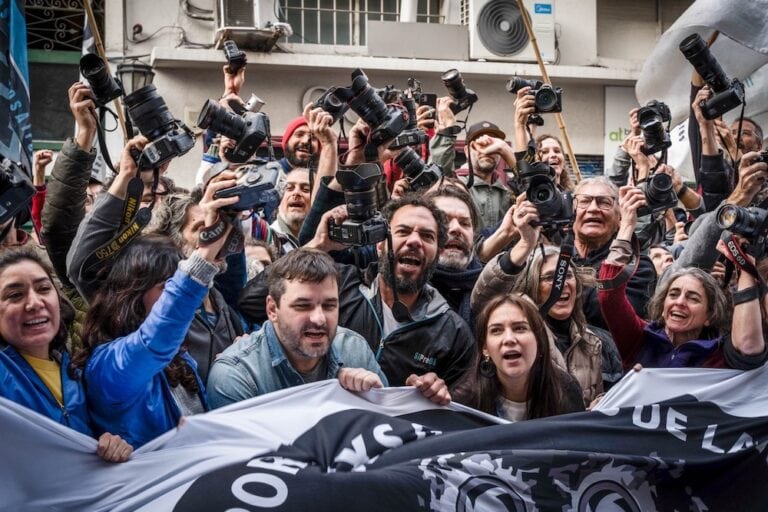(FOPEA /IFEX) – The following is an abridged translation of a FOPEA statement: FOPEA has called for the justice system to facilitate broad media access to the trials of individuals accused of human rights violations. 10 February 2009 marked the beginning of the trial of Jorge Olivera Róvere, who stands accused of crimes against humanity […]
(FOPEA /IFEX) – The following is an abridged translation of a FOPEA statement:
FOPEA has called for the justice system to facilitate broad media access to the trials of individuals accused of human rights violations. 10 February 2009 marked the beginning of the trial of Jorge Olivera Róvere, who stands accused of crimes against humanity committed during the last military dictatorship. The case is being heard in the Oral Federal Court No. 5 (Tribunal Oral y Federal No. 5, TOF5). The courts’ judges have only made provisions for print media outlets to be present at the trial, and have excluded television cameras, photographic cameras and audio equipment, determining that the trial will only be filmed by police personnel.
This means that audiovisual, radio and digital media will not have access to the court chambers and will only be able to obtain filmed materials that is available via closed circuit cameras. In addition, the access to these materials will only be on a first come, first served basis.
FOPEA has a sent a letter to the head of TOF5 calling for wider media coverage to be permitted. The letter also makes reference to an agreement signed by the Supreme Court on 28 October 2008 in which the importance of the media’s presence at trials involving human rights violation cases is highlighted and which calls for radio and television coverage of the opening of trial proceedings, the reading of the charges and the sentencing in the belief that this strengthens the rule of law and the justice system itself. The Supreme Court said, “The principle behind publicising the process constitutes one of the fundamental conditions for legitimacy of the administration of justice.” FOPEA considers the limitations placed on the media in the Olivera Róvere case to be a restriction of the right to information of audiovisual media outlets.
Finally, FOPEA called on the authorities to ensure the safety of journalists who are covering the trial since there have been a number of worrisome precedents, including:
– the January 2009 threats against journalist Gustavo Heredia, of Radio Universidad station in San Luis, who is covering the trial of individuals involved in human rights abuses during the military dictatorship
– the January 2008 actions against journalist Andrea San Esteban, aimed at intimidating her when she was conducting an investigation into what was likely a concentration camp during the dictatorship
– the constant threats in 2005 against writer and journalist Mariano Saravia, who wrote a book about the human rights violations committed by police in the province of Córdoba during the dictatorship.
For further information on the Heredia case, see: http://ifex.org/en/content/view/full/100306
For further information on the San Esteban case, see: http://ifex.org/en/content/view/full/90565
For further information on the Saravia case, see: http://ifex.org/en/content/view/full/78661


